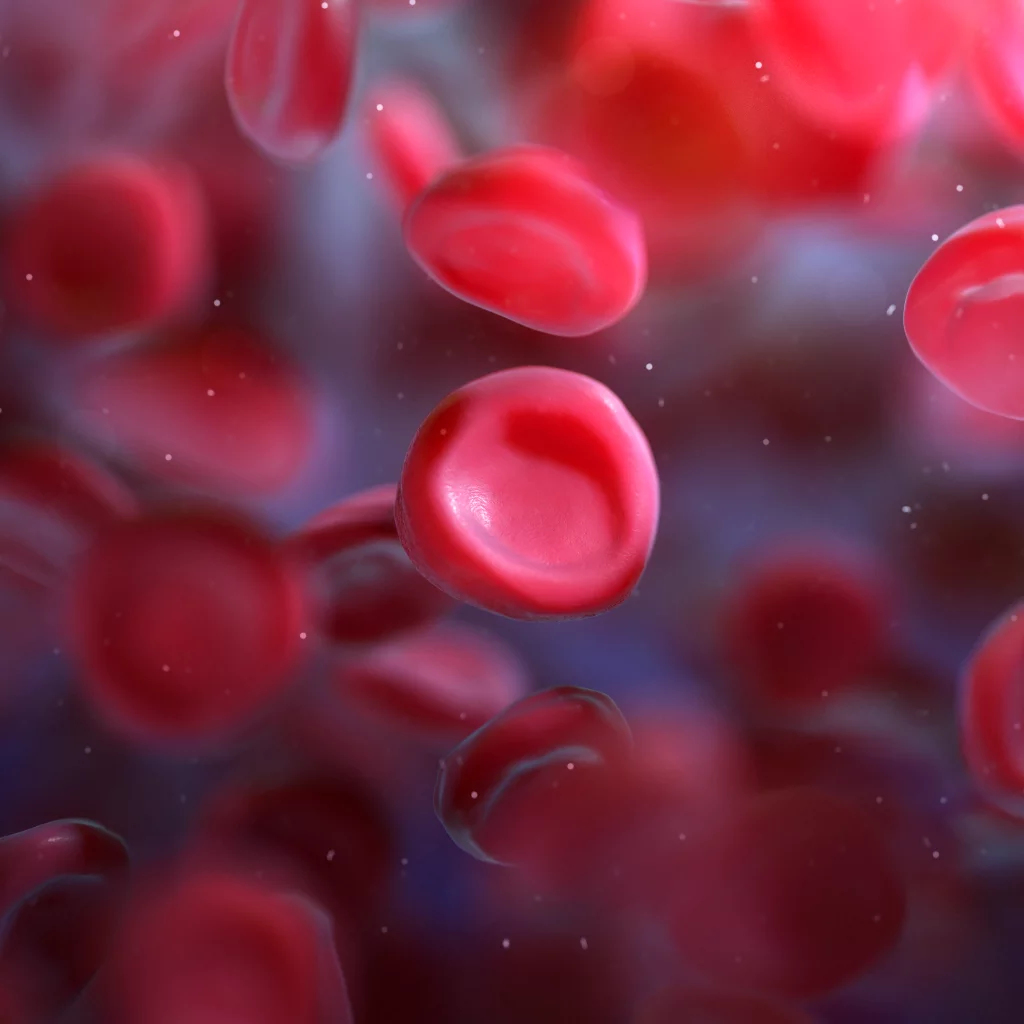What are platelet cells?
Platelet cells are found in the blood and spleen. They are essential for normal blood clotting and play a role in wound healing. Platelets are also known as Thrombocytes and are categorized as blood cells.
Alternate Names
- Thrombocytes (pronounced throm-bo-sites)
- PLT (Platelet count)
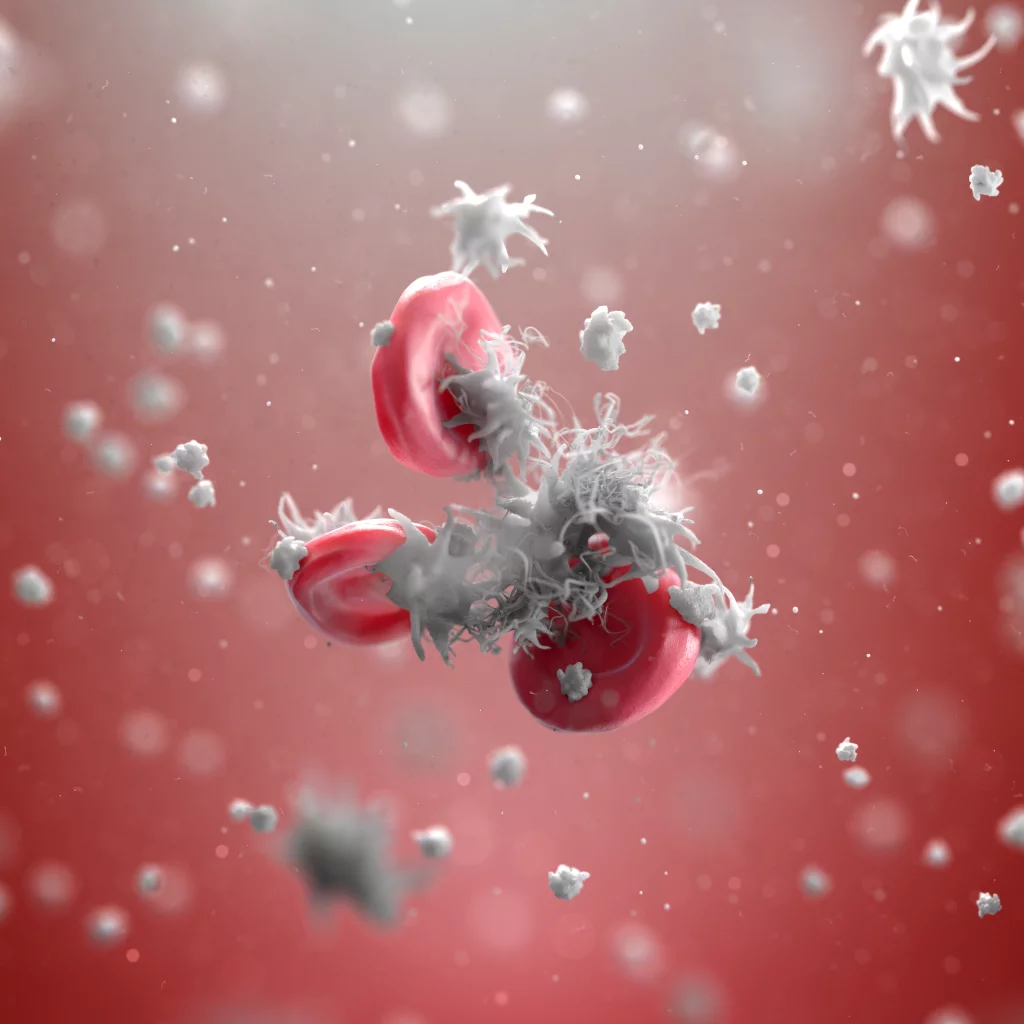
Platelet cells sticking to red blood cells after activation.
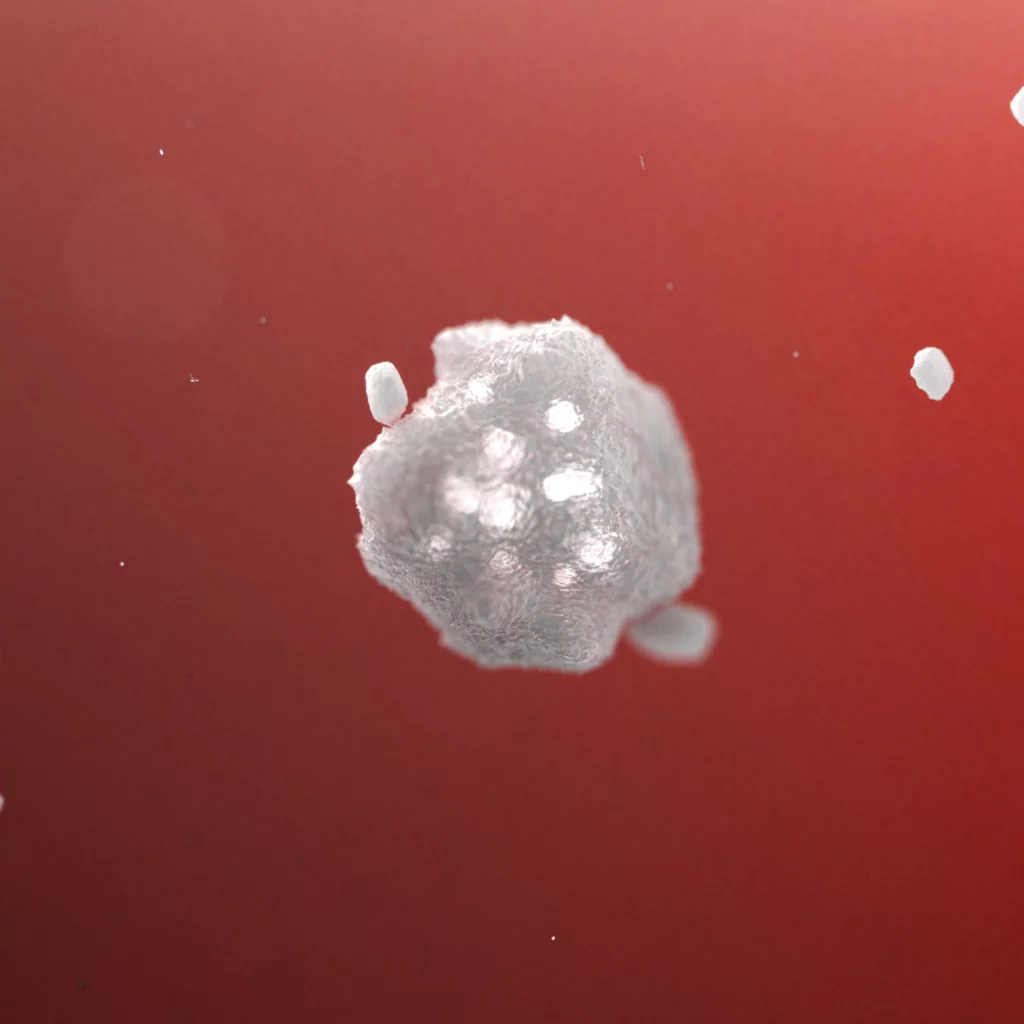
Resting Platelet cell before to activation.
Anatomy and structure
- Granules
- Clotting factors
- Proteins
Platelets are about 2-3 micrometers in diameter, are colorless, and lack a nucleus. They hold granules that contain clotting factors and proteins that help to promote clotting.

When activated, platelets change shape to better stick to the wounded area.
Function
Platelet cells play a vital role in the clotting of blood and healing of wounds. They are activated when the lining of a blood vessel is damaged, releasing chemicals that cause the platelets to stick to the damaged area and form a clot.
Activation
Once activated the platelet cells begin the process of forming the clot. Activation begins when the platelets bind to collagen and other proteins that are exposed when the blood vessel is damaged.
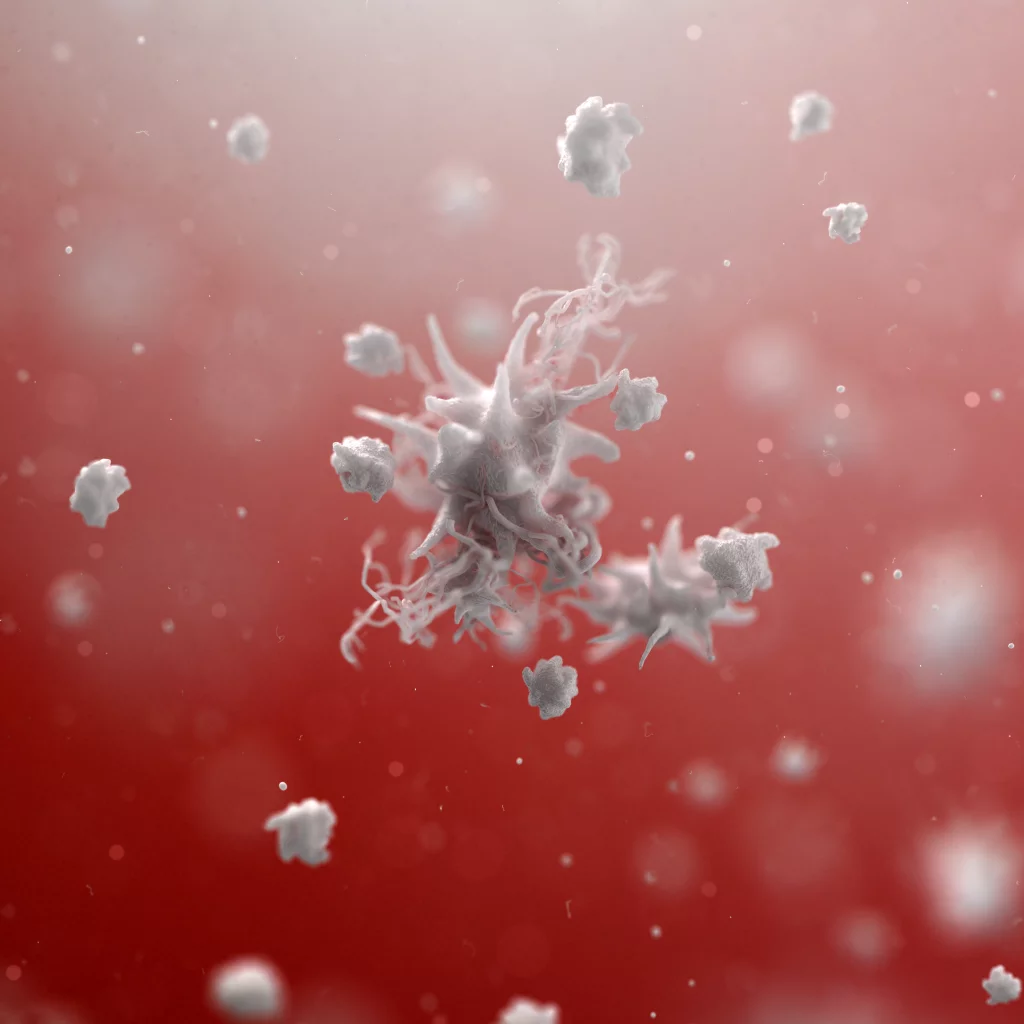
Activated platelets floating in blood know as platelet aggregation.
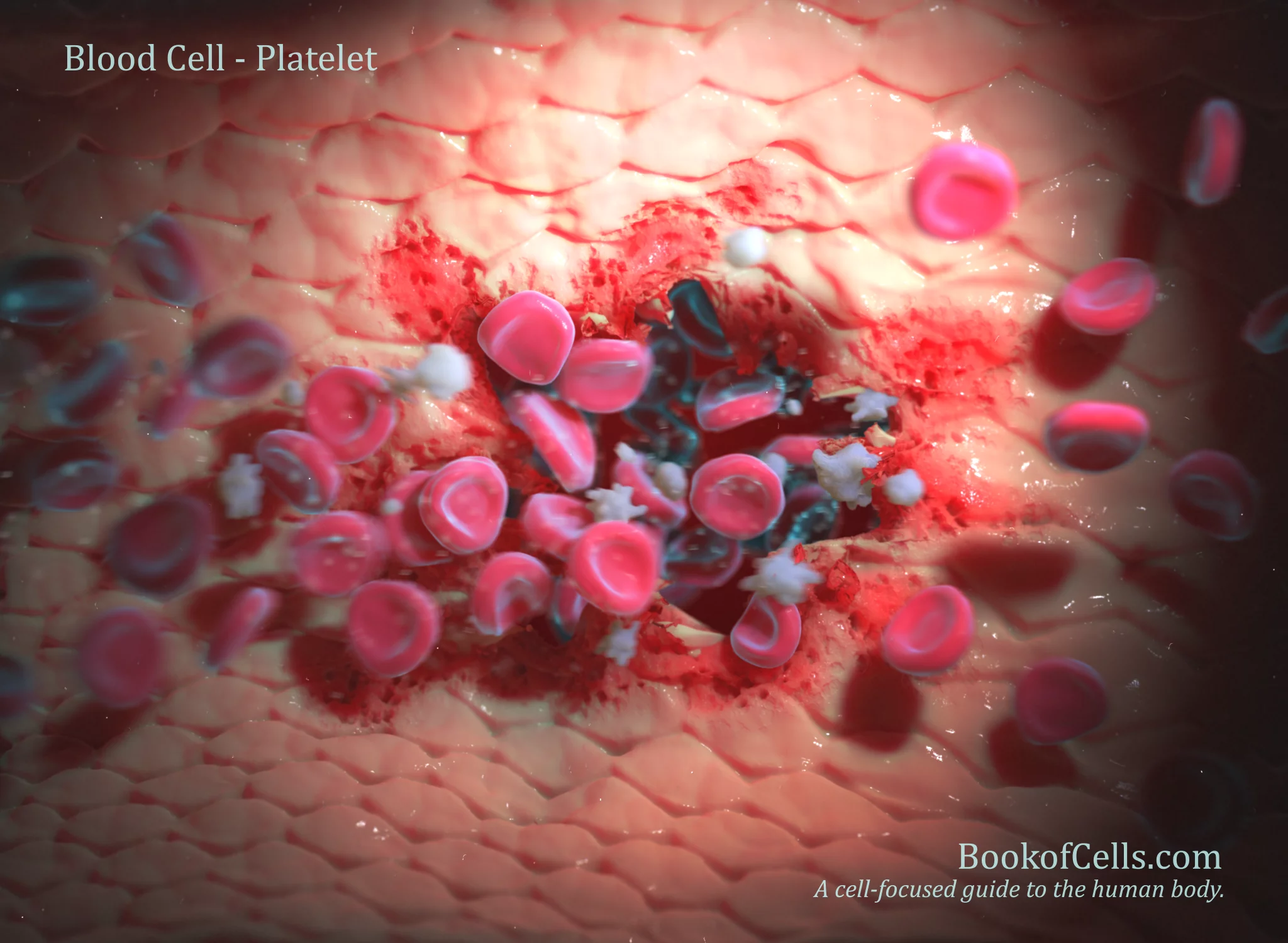
Platelet cells are activated when the lining of a blood vessel is damaged.
Forming a stable clot
At the same time, calcium and other substances are released, activating more platelets and causing them to secrete additional factors that attract more platelets. Finally, the fibrinogen in the plasma is converted to fibrin, which binds the platelets together in a web to form a strong clot.
This binding triggers the release of a number of chemicals, including adenosine diphosphate (ADP), thromboxane A2 (TXA2), and serotonin, which cause the platelets to change shape, become sticky, and form a platelet plug.
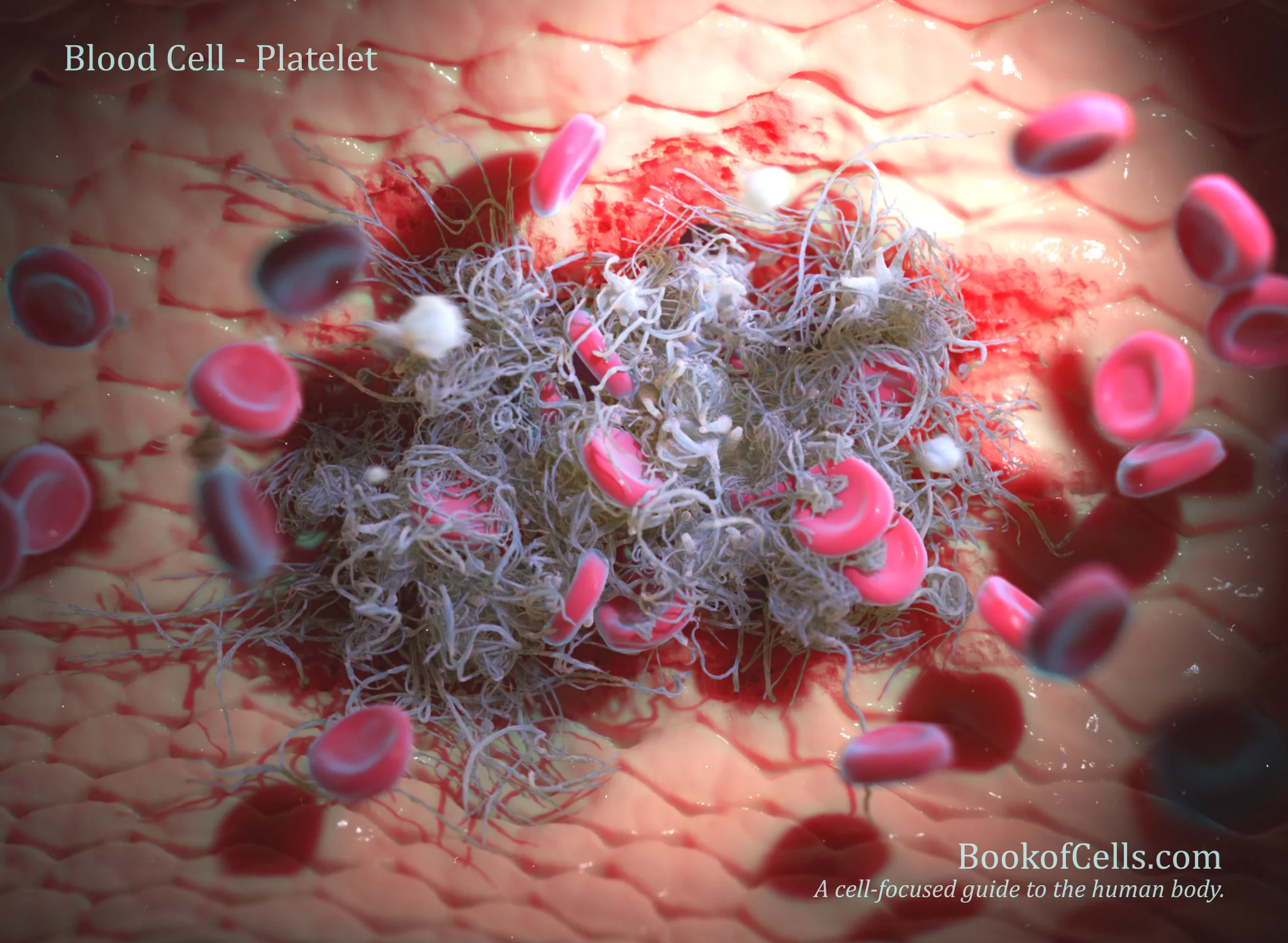
Once activated, the platelet cells release chemicals that cause them to stick to the damaged area and form a clot.
Life Cycle
Platelets are produced in the bone marrow from megakaryocytes. After they are released into the bloodstream, the platelet cells circulate for about 10 days before being removed by the spleen.
Related diseases
- Thrombocytopenia: A condition characterized by low platelet levels, which can lead to excessive bleeding.
- Thrombocytosis: A condition characterized by high platelet levels, which can increase the risk of blood clots and stroke.
How platelets relate to health
Essential for the clotting and healing of blood vessels, having abnormal platelet levels can result in serious health risks. Low platelet levels may lead to excessive bleeding, while high platelet levels can increase the risk of blood clots and stroke.
Platelet donations can often only be given by males. This is due to a rare condition called transfusion-related acute lung injury (TRALI).
Platelet cells are also vital elements of cancer treatments and are used in organ transplants. In addition, when undergoing complex surgery procedures, a platelet function test can be used to diagnose and show if a patient has a higher risk of bleeding.
Summary
Platelets are small, colorless cells that are essential for normal blood clotting and wound healing. They are produced in the bone marrow and circulate in the bloodstream for about 10 days before being removed by the spleen. Low platelet counts can lead to excessive bleeding and increased risk of infection, while high platelet counts can increase the risk of blood clots, stroke, and heart attack.
Created by BookofCells.com
Published:
For any questions or comments please reach out!
Email: bookofcells@gmail.com
If you found our content interesting or useful, sharing helps us out and we really appreciate it!
For additional content and to be the first to see new cells follow us on Twitter!
Thank you for visiting BookofCells.com!
Explore more cells bellow
Sources
Stöppler, M. Definition of Platelet aggregation. Retrieved from https://www.rxlist.com/platelet_aggregation/definition.htm on Dec. 15, 2022. What Are Platelets In Blood. Retrieved from https://www.redcrossblood.org/ on on Dec. 15, 2022. Dixon. S, (2022). The Function of Blood Platelets or Thrombocytes. Retrieved from https://www.verywellhealth.com/thrombocyte-what-is-a-thrombocyte-797228 on Dec. 16, 2022. Byju's. Platelets, Coagulation and Haemostasis. Retrieved from https://byjus.com/biology/platelets-coagulation-haemostasis/ on Dec. 16, 2022. MedlinePlus. Platelet Disorders. Retrieved from https://medlineplus.gov/plateletdisorders.html on Dec. 16, 2022. Wikipedia. Platelet. Retrieved from https://en.wikipedia.org/wiki/Platelet on Dec. 17, 2022.Other Cell Interactions
- Red blood cells
White blood cells
Megakaryocytes

